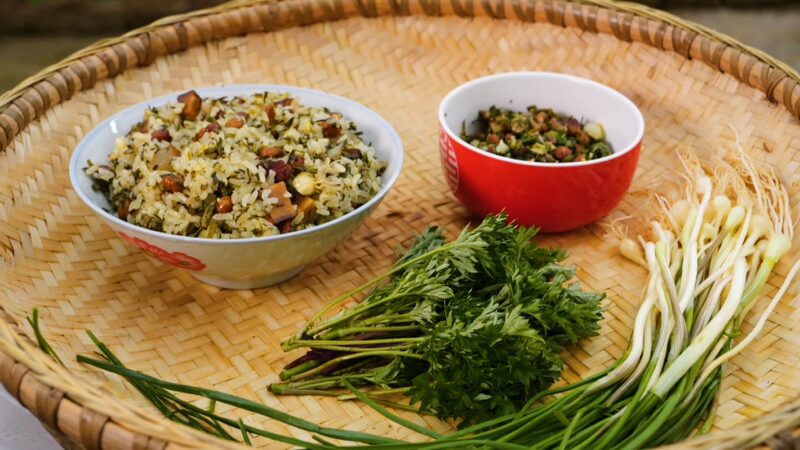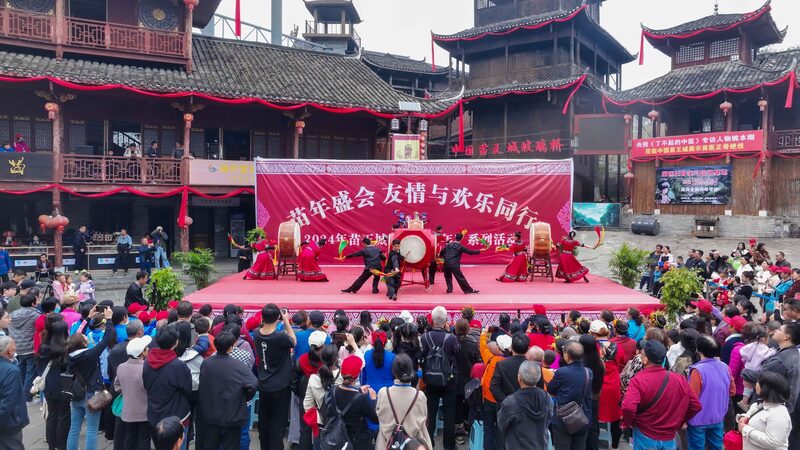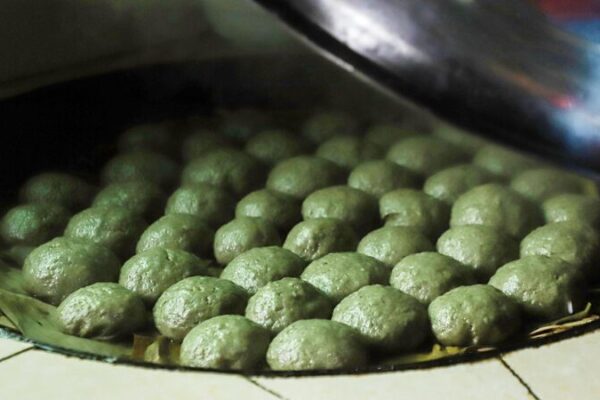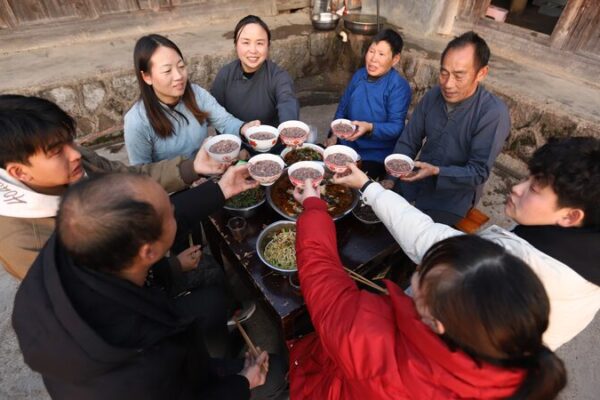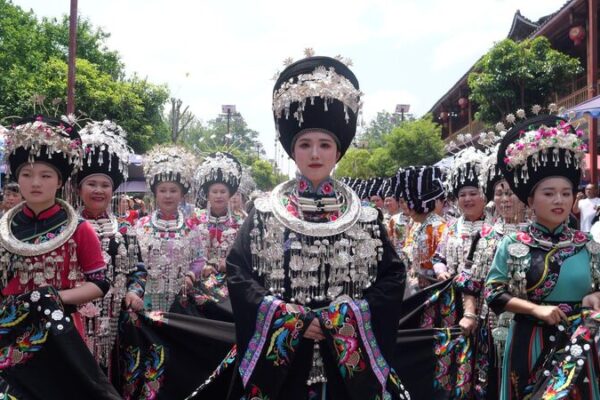In the warm embrace of March, residents of Yuping Dong Autonomous County in southwest China’s Guizhou Province are busy preparing Shefan, a traditional spring delicacy, to welcome the new season.
Shefan, a dish with ancient roots, holds significant cultural importance among several ethnic groups in China, including the Han, Tujia, Miao, and Dong communities. Traditionally used to offer sacrifices to the gods of the land and grain, Shefan symbolizes people’s deep hopes for a prosperous life.
The main ingredients of Shefan include glutinous rice, preserved meat, sweet wormwood, wild onions, soybeans, and peanuts. In spring, wild vegetables like sweet wormwood and wild onions flourish across fields and along roadsides, becoming essential components of the dish.
Locals meticulously pick and wash these wild vegetables, adding garlic sprouts and greens to enhance the flavor. They also prepare firewood-smoked dried tofu and preserved meat, cutting them into small cubes, and cleanse the glutinous rice.
The cooking process is a communal affair. Residents light fires and heat large pots, starting by frying peanuts and soybeans. Next, they add the cubes of dried tofu and preserved meat, filling the air with an alluring aroma as the ingredients sizzle. The fresh vegetables are then incorporated, infusing the courtyard with a fragrant scent.
After about half an hour of steaming, Shefan is ready to be enjoyed. This traditional delicacy not only delights the taste buds but also serves as a way for the residents of Yuping Dong Autonomous County to express their love for spring and their enthusiasm for life.
By preparing and sharing Shefan, the community comes together to celebrate the season of renewal, honoring their heritage and embracing the hope that spring brings.
Reference(s):
Guizhou residents prepare traditional spring delicacy Shefan
cgtn.com
